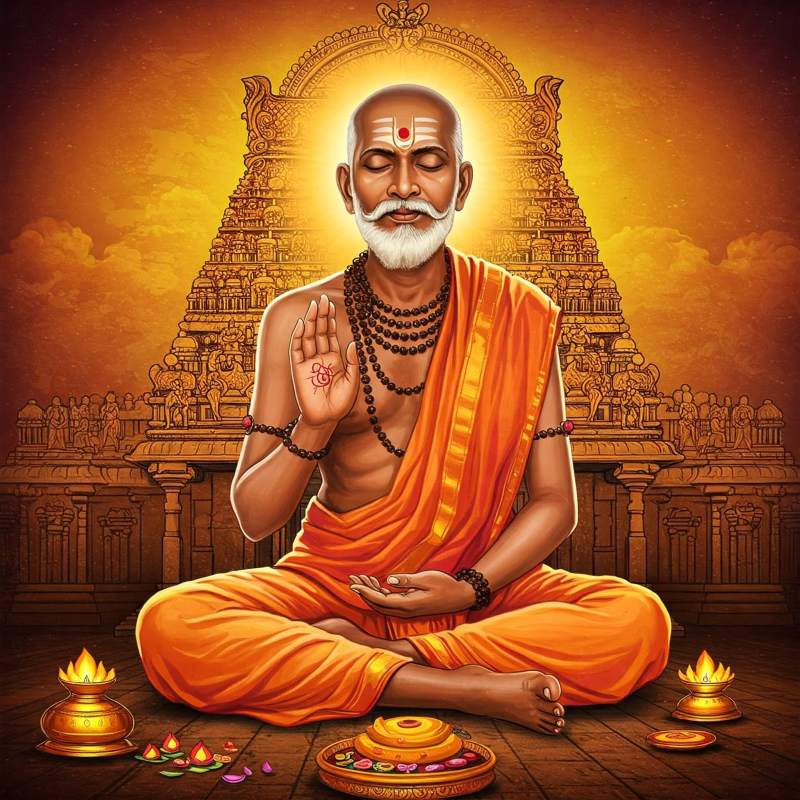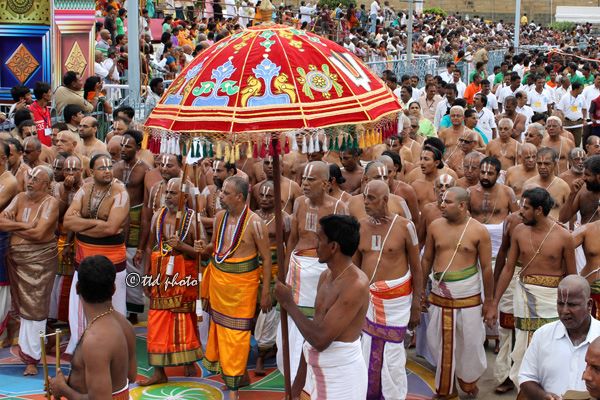Periya Alwar In all, we have 12 Alwars. Of them, two hail from Sri Villi Puttur. They are Vishnu Chitta and Andal, father and daughter. Vishnu Chitta is also called Periya Alwar. Among the Alwars, Vishnu Chitta has received high reverence. That is why he is also called as Periya Alwar. In Tamil, Periya means Read More
Tag: Alvars
Recitation of Vedas and Divya Prabandham in Sri Vari Temple
Recitation of Vedas and Divya Prabandham in Tirumala Temple According to Hindu Theology, there are fourteen worlds. All these fourteen worlds are one empire. For this empire, there is one emperor. All the living beings are His subjects. The empire is eternal and the emperor is also eternal. If there is an empire, an emperor Read More


